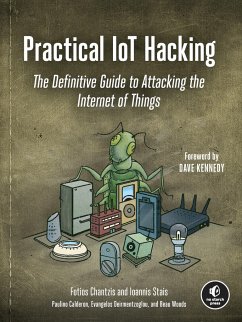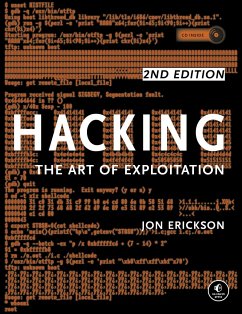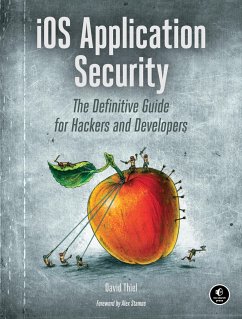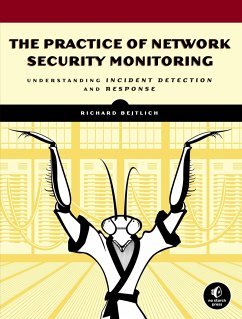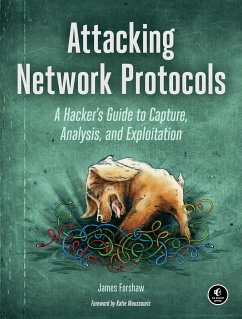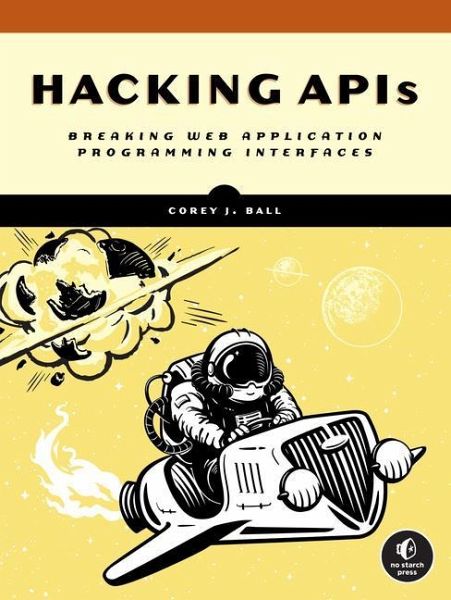
Hacking APIs
Breaking Web Application Programming Interfaces

PAYBACK Punkte
17 °P sammeln!
Hacking APIs is a crash course in web API security testing that will prepare you to penetration-test APIs, reap high rewards on bug bounty programs, and make your own APIs more secure.Hacking APIs is a crash course on web API security testing that will prepare you to penetration-test APIs, reap high rewards on bug bounty programs, and make your own APIs more secure.You ll learn how REST and GraphQL APIs work in the wild and set up a streamlined API testing lab with Burp Suite and Postman. Then you ll master tools useful for reconnaissance, endpoint analysis, and fuzzing, such as Kiterunner and...
Hacking APIs is a crash course in web API security testing that will prepare you to penetration-test APIs, reap high rewards on bug bounty programs, and make your own APIs more secure.
Hacking APIs is a crash course on web API security testing that will prepare you to penetration-test APIs, reap high rewards on bug bounty programs, and make your own APIs more secure.
You ll learn how REST and GraphQL APIs work in the wild and set up a streamlined API testing lab with Burp Suite and Postman. Then you ll master tools useful for reconnaissance, endpoint analysis, and fuzzing, such as Kiterunner and OWASP Amass. Next, you ll learn to perform common attacks, like those targeting an API s authentication mechanisms and the injection vulnerabilities commonly found in web applications. You ll also learn techniques for bypassing protections against these attacks.
In the book s nine guided labs, which target intentionally vulnerable APIs, you ll practice:
Enumerating APIs users and endpoints using fuzzing techniquesUsing Postman to discover an excessive data exposure vulnerabilityPerforming a JSON Web Token attack against an API authentication processCombining multiple API attack techniques to perform a NoSQL injectionAttacking a GraphQL API to uncover a broken object level authorization vulnerability
By the end of the book, you ll be prepared to uncover those high-payout API bugs other hackers aren t finding and improve the security of applications on the web.
Hacking APIs is a crash course on web API security testing that will prepare you to penetration-test APIs, reap high rewards on bug bounty programs, and make your own APIs more secure.
You ll learn how REST and GraphQL APIs work in the wild and set up a streamlined API testing lab with Burp Suite and Postman. Then you ll master tools useful for reconnaissance, endpoint analysis, and fuzzing, such as Kiterunner and OWASP Amass. Next, you ll learn to perform common attacks, like those targeting an API s authentication mechanisms and the injection vulnerabilities commonly found in web applications. You ll also learn techniques for bypassing protections against these attacks.
In the book s nine guided labs, which target intentionally vulnerable APIs, you ll practice:
Enumerating APIs users and endpoints using fuzzing techniquesUsing Postman to discover an excessive data exposure vulnerabilityPerforming a JSON Web Token attack against an API authentication processCombining multiple API attack techniques to perform a NoSQL injectionAttacking a GraphQL API to uncover a broken object level authorization vulnerability
By the end of the book, you ll be prepared to uncover those high-payout API bugs other hackers aren t finding and improve the security of applications on the web.




